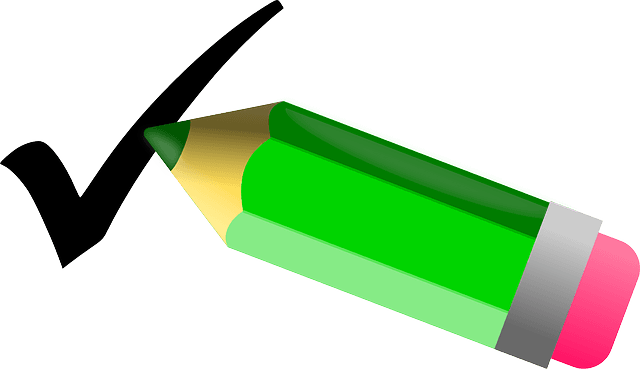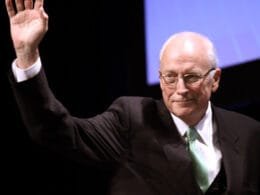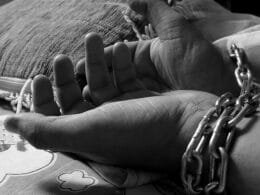Incorrect Guide
The “Politically Incorrect Guide to English and American Literature” sets out to challenge the conventional frameworks established within literary academia. The primary purpose of this book revolves around the critique of established narratives within literary analysis, aiming to empower readers with a fresh perspective on both English and American literature. By delving deep into the themes and values prevalent in traditional literary discourse, this guide advocates for the reassessment of literary significance through a more objective lens, greatly contrasting with politically correct interpretations that have become commonplace.
The author of this guide takes a firm stand against the restrictive nature of political correctness that often influences literary critique. This approach seeks to liberate literary discussions from the confines of preconceived notions, promoting free thought and individualism as guiding principles. The book challenges readers to examine literary works beyond their politically correct implications, thereby fostering a deeper appreciation for the art of storytelling, creativity, and the diverse motivations behind various works of literature.
Targeted towards a broad audience that includes both literary enthusiasts and scholars, the guide’s insights resonate with those who value an unfiltered exploration of literary works. By presenting alternative viewpoints, the guide aims to ignite discussions that move beyond the limitations imposed by contemporary critique. The use of politically incorrect literature serves not as a dismissal of traditional analysis but rather as an invitation to confront and interrogate the accepted narratives that often shape our understanding of literary value.
Ultimately, this introduction sets the stage for a comprehensive exploration of English and American literature through the lens of independence and critical thought, urging readers to reassess the boundaries set by political correctness in literary criticism.
Key Themes and Arguments in English Literature
The exploration of English literature has been a revered academic endeavor, marked by a multitude of themes that interrogate the human condition. The author of “The Politically Incorrect Guide to English and American Literature” posits that a critical reevaluation of significant literary figures such as William Shakespeare, John Milton, and the Romantics is essential in navigating contemporary interpretations steeped in political correctness. This section delves into the salient arguments the author articulates regarding their works and the broader cultural and moral truths they embody.
Shakespeare’s poignant exploration of power, ambition, and morality serves as a testament to the perpetual relevance of his works. The author analyzes plays like “Macbeth” and “Hamlet,” arguing that the intrinsic themes of human flaw, consequence, and existential inquiry transcend ideological frameworks that often seek to reinterpret these narratives. Whether questioning ambition in “Macbeth” or the intricacies of identity in “Hamlet,” Shakespeare’s timeless inquiries remain pivotal to literary dialogue.
Milton’s “Paradise Lost” further exemplifies literature’s capacity to engage with complex theological and philosophical issues. The author suggests that Milton’s depiction of free will and redemption allows readers to grapple with fundamental truths, challenging contemporary readings that may sidestep the work’s more profound implications in favor of partisan agendas. Through carefully selected quotations, the author illuminates Milton’s enduring relevance, arguing for a return to the authentic moral inquiries embedded in the text.
Additionally, the works of the Romantics, with their emphasis on nature, emotion, and individualism, are examined. The author contends that figures like Wordsworth and Byron provide critical insights into the human spirit and societal constructs that continue to resonate today. Highlighting various excerpts, the author advocates for an appreciation of these literary giants as purveyors of truth rather than mere subjects of social critique, thus underscoring the necessity to revisit literature free from the confines of modern ideological constraints.
Key Themes and Arguments in American Literature
American literature is rich with themes that resonate deeply with the complexities of the human experience. As explored in “The Politically Incorrect Guide to English and American Literature,” pivotal authors such as Mark Twain, Edgar Allan Poe, and Walt Whitman provide a lens through which readers can examine societal norms, moral ambiguities, and the broader cultural context of their time.
Mark Twain, often celebrated for his keen observations of American society, utilized humor and irony to critique the prevailing attitudes of his era. His works, particularly “The Adventures of Huckleberry Finn,” challenge readers to confront issues of race and morality, revealing a multifaceted picture of American life that defies simple categorization. Twain’s biting satire serves as a powerful tool, encouraging a departure from politically correct narratives that often dilute the richness of his critique.
Similarly, Edgar Allan Poe’s exploration of the macabre delves into themes of death, madness, and existential despair. His short stories and poetry demand an appreciation for the darker aspects of the human psyche while invoking a sense of empathy for the tortured individuals within his narratives. His works can be viewed as a rejection of sanitized storytelling, bringing forth a more authentic understanding of human emotions, thereby reinforcing the argument against the limitations of politically correct discourse.
Walt Whitman, on the other hand, celebrated the intricacies of individuality and the collective American experience in his seminal work, “Leaves of Grass.” His poetry encapsulates the diverse voices of America, urging readers to embrace a pluralistic view of identity. Whitman’s unapologetic celebration of humanity, including its imperfections and contradictions, positions his work as a counter-narrative to oversimplified views that may arise from a politically correct approach.
The examination of these authors and their selected works highlights the significant arguments present in American literature, offering a platform for readers to navigate the complexities and nuances often sidelined by mainstream literary discussions. Key quotations from these texts illuminate the authors’ perspectives, further illustrating how American literature can be both an artistic reflection and a critical commentary on society.
Conclusion and Implications for Literary Study
The Politically Incorrect Guide to English and American Literature offers a provocative lens through which to analyze literary works, prompting readers to navigate the complex intersection of politics and art. By advocating for a politically incorrect approach, the text posits that literature should serve as a platform for unfiltered expression and critical examination, ultimately enriching our engagement with texts. This perspective encourages readers to challenge prevailing norms and resist the pressures of contemporary political correctness, which can often obscure the nuanced meanings inherent in literature.
The implications for current literary studies are substantial. An embrace of politically incorrect methodologies pushes scholars and students alike to reconsider the frameworks through which they interpret texts. This is particularly relevant in a climate where certain themes and ideas may be deemed too controversial or offensive to explore fully. By fostering an environment that welcomes divergent viewpoints and debates, literary analysis can become a more dynamic and inclusive field. Quotations from the book underscore this point, encapsulating the idea that “the greatest works of literature often emerge from discomfort and controversy.”
Future directions for literary analysis and education must center on promoting intellectual freedom. As pedagogical practices evolve, there is a growing necessity to incorporate diverse interpretations that challenge conventional wisdom. Emphasizing critical thinking over conformity can invigorate literary studies, making it a richer discipline. As readers and educators reconsider the boundaries imposed by societal norms, they can discover deeper connections within texts, leading to a more comprehensive understanding of literature’s role in society.
Ultimately, the call for broader acceptance of varying interpretations reflects a commitment to preserving the integrity of literary inquiry. Such an approach not only honors the complexity of literary works but also reinforces the belief that literature serves as an essential conduit for exploring the human experience in all its dimensions.




